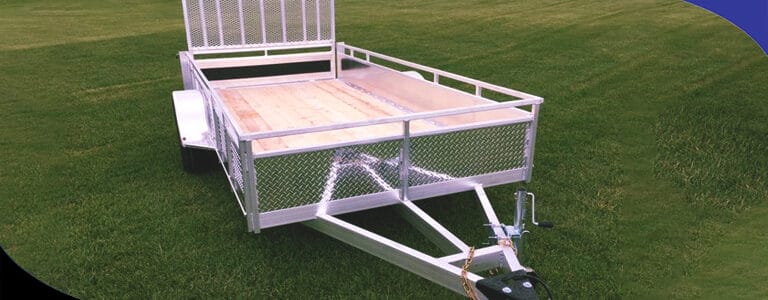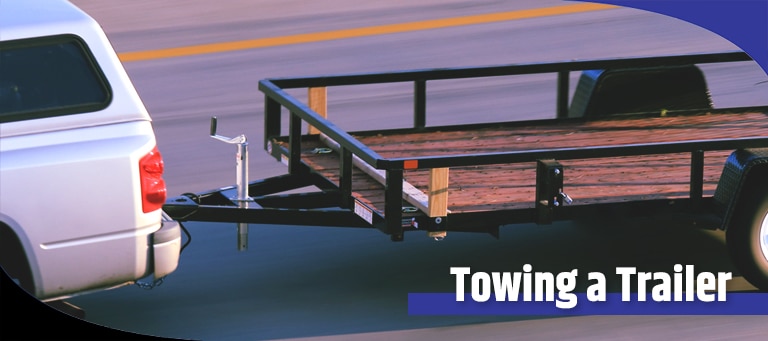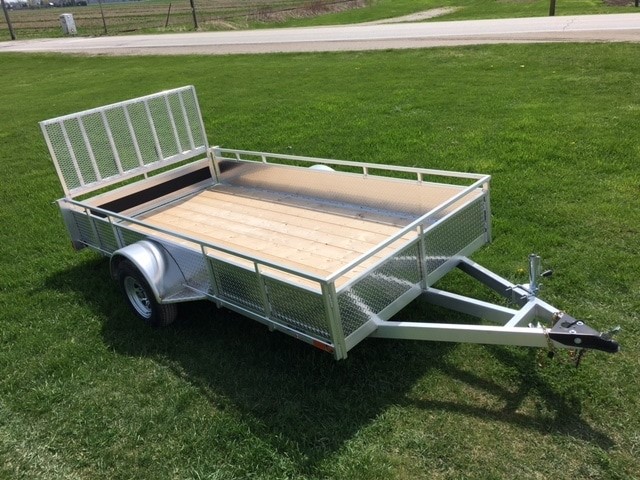
Avoid These Common Mistakes When Towing a Trailer
Whether you’ve just purchased your first trailer or you’re a veteran at hauling, you need to always be alert to the risks involved when towing. Here are some common mistakes that many trailer owners make. Don’t risk damaging your truck and trailer or getting into an accident on the road. Avoid these common mistakes with your reliable Millroad Manufacturing aluminum trailer.
Overloading Your Axles
An overloaded trailer is a sure recipe for axle damage, tongue damage or reduced braking power. Unfortunately, this is one of the most common mistakes. There are a few different weight ratings you need to keep in mind to ensure your load is safe:

![]()
- Gross vehicle weight rating
- Gross combination weight rating
- Gross axle weight rating

- Vehicle towing capacity
- Tongue weight
If anyone of these is exceeded, then you could be at risk of an accident. Be sure your pulling vehicle, trailer, tongue, and all the related axles are designed to handle the load you’re pulling. A slightly overloaded trailer or axle can cause more wear and increase stopping time, but too much weight for too many loads and you may experience a catastrophic failure.
A properly balanced load not only increases the lifespan of your truck and trailer but decreases your braking distance. An uneven, wandering trailer can be difficult to stop and cause your vehicle to screech through an intersection or collide with another vehicle.
Hauling an Unbalanced Load
A similar issue is not spending time balancing your load. This is particularly common if you have a single item that’s very heavy, like a skid steer or lawn mower. Your trailer hitch should only hold about 10% of your trailer’s overall weight.
The overall weight of your load should be spread out over your trailer, with slightly more weight at the front of the bed. Keep the left and right sides as even as possible to prevent a wandering trailer.
Not Using Straps and Chains
A wandering trailer may be dangerous, but a wandering load is even more hazardous. No one wants belongings to be strewn across the highway, particularly the driver behind you. Use straps, chains and approved tie-down points to firmly hold your cargo in place. Check out the weight rating on all your strapping to be sure you don’t overload it.
Skipping Inspections
Our Millroad trailers are designed to be low maintenance, but that doesn’t mean you can hit the road without inspecting your rig. Check your axles, tires and wiring harness for signs of wear or other repair issues. We use EZ lube axles to make maintenance faster, but it’s still an essential step. Don’t wait until you’re on the road to realize you have a flat tire or a burned-out brake light.
Check out your long-lasting LED lighting and shrink-wrapped electrical harnesses for signs of wear. Inspect your tire pressure and ensure there aren’t any issues with your premium radial tires before you hit the road.
Ignoring Local Regulations
Depending on your location, there may be required inspections for your trailer. Other local laws regulate driving speeds, side mirror requirements, and weight limits on local roads. Check all these before you hit the road, particularly if you’re driving a long distance to a new location.
A few simple phone calls or conversations with local law enforcement can keep you from getting a ticket or damaging local roads. This step isn’t just about your trailer but affects your whole community.
Haul Your Cargo Safely With a Millroad Trailer
Our trailers are designed to haul heavy loads, but they still need to be handled responsibly. Keep your trailer safely hauling for years to come by avoiding these common mistakes. Contact us today for more information about trailer safety and learn how you can receive a custom aluminum trailer from a leading manufacturer in Ontario.